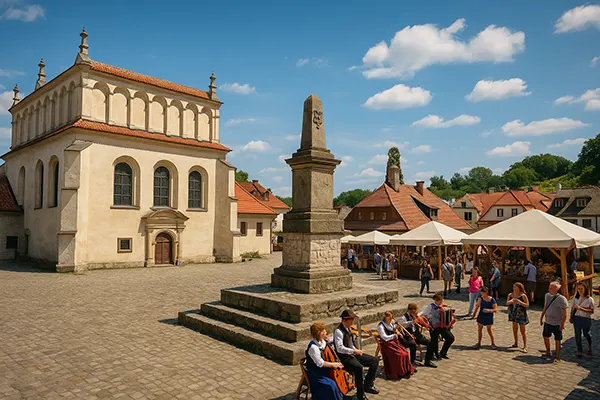
Jewish Heritage of Poland: A Journey Through Small Towns
Poland’s Jewish heritage is one of the richest in Europe. However, much of it lies not in major cities, but in the quiet corners of small towns. From wooden synagogues and historic cemeteries to vibrant cultural festivals, these towns preserve centuries of Jewish life. Exploring them offers a unique view of Poland’s multicultural past and an understanding of how history still resonates in the present.
Historical Synagogues and Town Memories
Kazimierz Dolny, a picturesque town on the Vistula River, houses one of Poland’s best-preserved 17th-century synagogues. Today, it serves as a museum, offering insights into the daily lives and spiritual practices of the once-thriving Jewish community.
In Leżajsk, the synagogue may not be operational anymore, but the town remains an essential place for Hasidic pilgrimage, especially to the tomb of Elimelech of Lizhensk, a revered rabbi and mystic whose legacy attracts thousands of Jews annually.
Tykocin’s baroque synagogue, dating back to 1642, is another symbol of Jewish heritage. Restored after decades of neglect, it now functions as a museum and cultural venue, preserving artifacts and history in a solemn, respectful manner.
Jewish Architectural Landmarks
These synagogues represent more than places of worship; they reflect the artistic and communal values of the Jewish populations. Each structure blends architectural influences of the region with Jewish traditions, creating a uniquely Polish-Jewish aesthetic.
Decorative elements, such as painted ceilings, intricate wooden carvings, and Hebrew inscriptions, showcase both spiritual and artisan craftsmanship. Many of these buildings have undergone careful restoration to maintain authenticity.
Efforts by Polish and international organisations have ensured that these synagogues remain accessible, educational spaces where local history can be respectfully explored by all visitors.
Memorial Routes and Holocaust Remembrance
Small towns in Poland played tragic roles during the Holocaust. Today, many have integrated memorial routes to educate and honour the victims. These routes often trace deportation paths, destroyed ghettos, and mass graves.
In places like Markowa and Jedwabne, local museums and monuments offer honest, sometimes painful, but essential education on the events of the 1940s. These initiatives aim to preserve memory and confront historical responsibility.
The Trail of Remembrance and Presence in southeast Poland is one such project that maps Jewish life and loss across several towns. It offers visitors maps, plaques, and mobile guides to contextualise what might otherwise be forgotten spaces.
Holocaust Education and Commemoration
These routes are not just historical records—they are active educational tools. Schools, universities, and cultural groups regularly use them for history lessons and workshops on tolerance and memory.
Annual remembrance events, such as March of the Living and Yizkor commemorations, gather both Jewish and non-Jewish participants. These moments of reflection aim to build dialogue and understanding.
International collaborations, often including Israeli, American, and European institutions, continue to support preservation and educational work in these towns, highlighting the global relevance of local history.
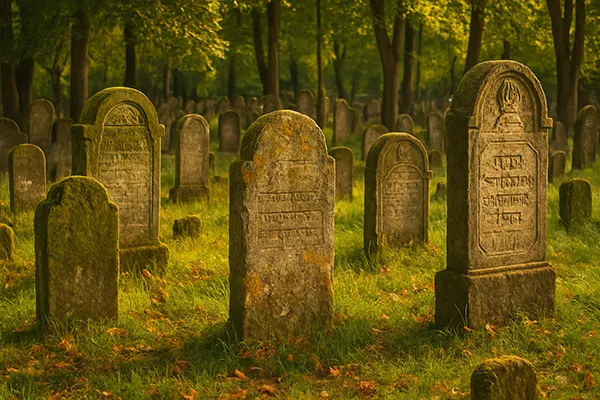
Revival of Jewish Culture in the Regions
Despite the tragic losses, Jewish culture in Poland’s small towns has not vanished. In recent decades, grassroots initiatives have brought back festivals, concerts, and academic events that celebrate Jewish traditions and presence.
The Festival of Jewish Culture in Kazimierz Dolny attracts thousands of visitors each summer. It includes klezmer music, kosher cooking workshops, historical walks, and synagogue tours, fostering cross-cultural appreciation.
Other towns like Sejny and Szczebrzeszyn host theatre productions, exhibitions, and restoration workshops, often led by youth groups and local communities eager to reconnect with their multicultural roots.
Community Engagement and Heritage Preservation
Much of the cultural revival is community-driven. Local historians, volunteers, and cultural centres collaborate to create inclusive events that welcome Jewish descendants, tourists, and residents alike.
Educational programmes often involve schools and families in learning about Jewish customs, language, and historical narratives—breaking down stereotypes and building intergenerational awareness.
Importantly, these efforts do not romanticise the past but aim for honest engagement with history, encouraging responsibility and cultural continuity in today’s Poland.
Popular articles
-
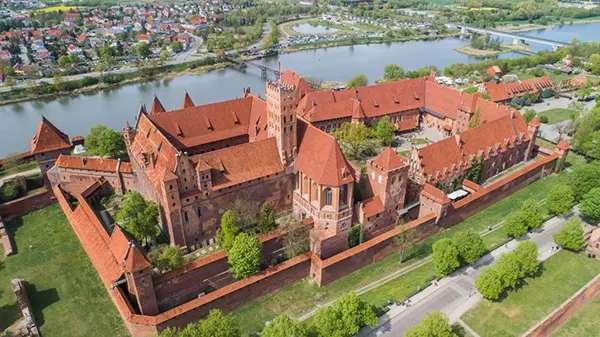 Malbork Castle – The Largest Brick Fortress in the World
Malbork Castle – The Largest Brick Fortress in the WorldMalbork Castle stands as one of the most significant medieval …
-
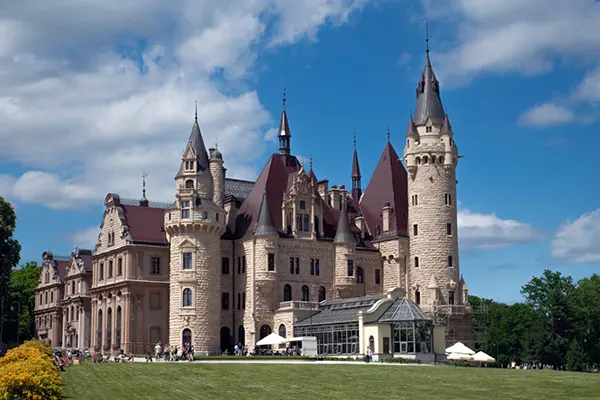 Moszna Castle: A Fairytale Landmark of Lower Silesia
Moszna Castle: A Fairytale Landmark of Lower SilesiaMoszna Castle stands as one of the most recognisable historical …
-
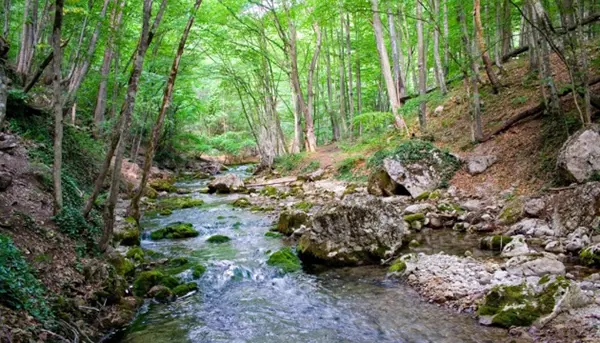 Roztocze — the Green Pearl of Eastern Poland
Roztocze — the Green Pearl of Eastern PolandRoztocze, a scenic region stretching across the Lublin Voivodeship in …
